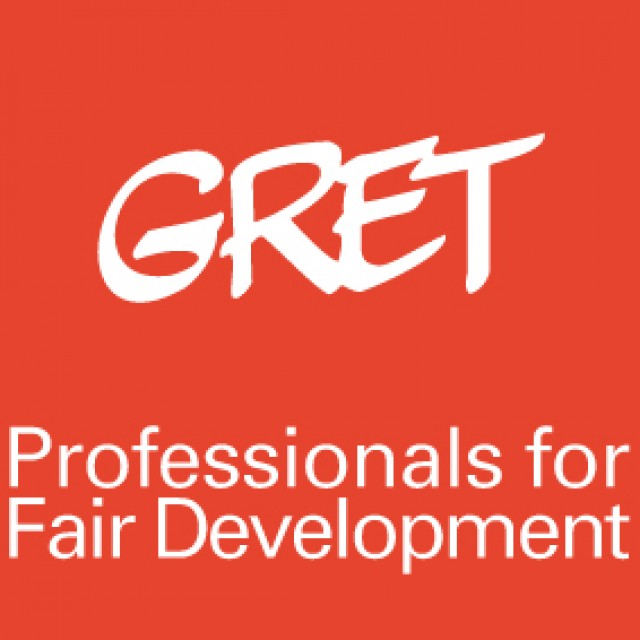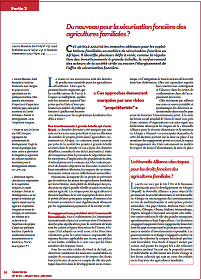Location
Groupe de Recherches et d'Echanges Technologiques (GRET) (French, Group For Research and Technology Exchanges) is a non-governmental association supporting international cooperation, professional solidarity and poverty reduction in the countries of Asia, Africa, Europe and Latin America. It was established in the late 1970s.
Its activities include implementation of field projects, expertise, studies, research, running information and exchange networks. The main spheres of attention are:
- Access to Essential Services
- Sustainable Food and Agriculture
- Institutional Development, Actors, Territories
- Information and Communication for Development
- Microfinance and Small Enterprise
- Public Policies and International Regulations.
The Association is financed mainly by the European Union, the World Bank, the French Ministry of Foreign Affairs, the French Development Agency and also by the Asian Development Bank, Unicef, USAID and many others.
Members:
Resources
Displaying 81 - 85 of 87Making Land Rights More Secure: Conclusions of a Seminar held in Ouagadougou, Burkina Faso, 19-21 March 2002
Ensuring security for farmers is a fundamental economic, social and citizenship issue, raising institutional questions. There needs to be a break with inherited colonial legal dualism. Local management of land and resources is needed. There is no automatic link between land title and security of tenure. Looks at the main approaches adopted in West Africa in the recent past. Fully confirm the role, dynamism and adaptability of family farms. Positive recognition needs to be given to local land arrangements and informal contracts. Decentralisation offers valuable opportunities.
Making Land Rights More Secure: Conclusions of a Seminar held in Ouagadougou, Burkina Faso, 19-21 March 2002
Ensuring security for farmers is a fundamental economic, social and citizenship issue, raising institutional questions. There needs to be a break with inherited colonial legal dualism. Local management of land and resources is needed. There is no automatic link between land title and security of tenure. Looks at the main approaches adopted in West Africa in the recent past. Fully confirm the role, dynamism and adaptability of family farms. Positive recognition needs to be given to local land arrangements and informal contracts. Decentralisation offers valuable opportunities.
Making Land Rights More Secure: Conclusions of a Seminar held in Ouagadougou, Burkina Faso, 19-21 March 2002
Ensuring security for farmers is a fundamental economic, social and citizenship issue, raising institutional questions. There needs to be a break with inherited colonial legal dualism. Local management of land and resources is needed. There is no automatic link between land title and security of tenure. Looks at the main approaches adopted in West Africa in the recent past. Fully confirm the role, dynamism and adaptability of family farms. Positive recognition needs to be given to local land arrangements and informal contracts. Decentralisation offers valuable opportunities.
Prendre en compte les enjeux fonciers dans une démarche d’aménagement
Modification de l’enjeu économique de l’espace aménagé, compétition pour l’accès à cet espace, compétition politique pour le contrôle du projet : tout projet d’aménagement (en irrigation, reboisement, mise en défens, etc.) suscite des stratégies pour tirer bénéfice des avantages espérés, ou pour éviter d’en être exclu.
Du nouveau pour la sécurisation foncière des agricultures familiales ?
Cet article analyse les avancées obtenues pour les exploitations familiales en matière de sécurisation foncière en Afrique. Il identifie plusieurs défis à venir, comme la régulation des investissements à grande échelle, le renforcement des acteurs de la société civile ou encore l’élargissement de l’offre de sécurisation foncière.




